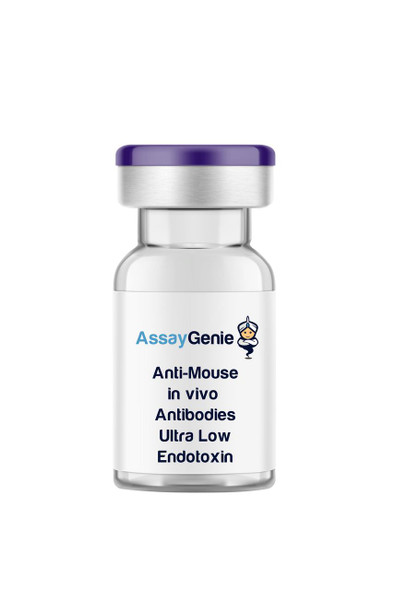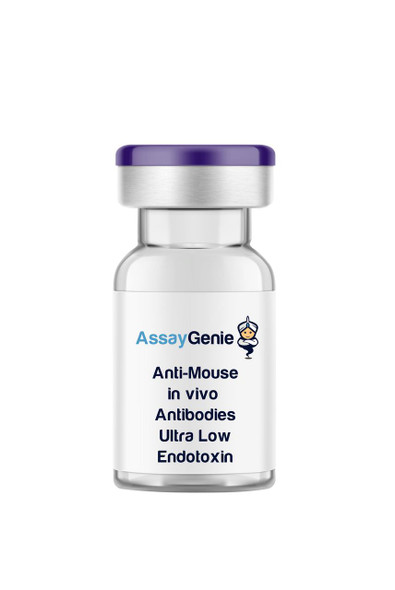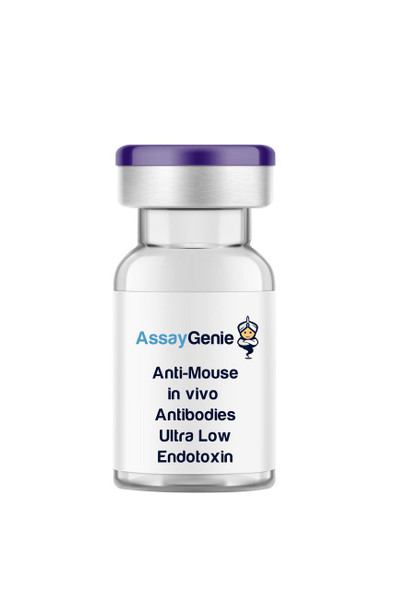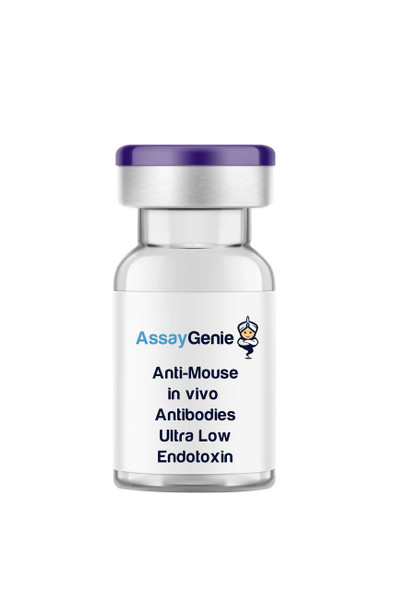Anti-Mouse CD40 [FGK45] In Vivo Antibody - Ultra Low Endotoxin
- SKU:
- IVMB0153
- Product Type:
- In Vivo Monoclonal Antibody
- Clone:
- FGK45
- Protein:
- CD154
- Isotype:
- Rat IgG2a
- Reactivity:
- Mouse
- Synonyms:
- Bp50
- TNFRSF5
- Research Area:
- Immune Checkpoint & Cancer Biology
- Endotoxin Level:
- Ultra Low Endotoxin
- Host Species:
- Rat
- Applications:
- Act
- FA
- WB
Description
| Product Name: | Anti-Mouse CD40 [FGK45] In Vivo Antibody - Ultra Low Endotoxin |
| Product Code: | IVMB0153 |
| Size: | 1mg, 5mg, 25mg, 50mg, 100mg |
| Clone: | FGK45 |
| Protein: | CD154 |
| Product Type: | Monoclonal Antibody |
| Synonyms: | Bp50, TNFRSF5 |
| Isotype: | Rat IgG2a |
| Reactivity: | Mouse |
| Immunogen: | Recombinant Mouse CD40 Fusion Protein |
| Applications: | Act, FA, WB |
| Formulation: | This monoclonal antibody is aseptically packaged and formulated in 0.01 M phosphate buffered saline (150 mM NaCl) PBS pH 7.2 - 7.4 with no carrier protein, potassium, calcium or preservatives added. |
| Endotoxin Level: | <0.5 EU/mg as determined by the LAL method |
| Purity: | ≥98% monomer by analytical SEC >95% by SDS Page |
| Preparation: | Functional grade preclinical antibodies are manufactured in an animal free facility using only In vitro protein free cell culture techniques and are purified by a multi-step process including the use of protein A or G to assure extremely low levels of endotoxins, leachable protein A or aggregates. |
| Storage and Handling: | Functional grade preclinical antibodies may be stored sterile as received at 2-8°C for up to one month. For longer term storage, aseptically aliquot in working volumes without diluting and store at -80°C. Avoid Repeated Freeze Thaw Cycles. |
| Applications: | Act, FA, WB |
| Reactivity: | Mouse |
| Host Species: | Rat |
| Specificity: | Clone FGK45 recognizes an epitope on mouse CD40. |
| Antigen Distribution: | CD40 is widely expressed on antigen-presenting cells such as dendritic cells, B cells, macrophages, and monocytes, in addition to non-immune endothelial cells, basal epithelial cells, and a variety of tumors. |
| Immunogen: | Recombinant Mouse CD40 Fusion Protein |
| Concentration: | ≥ 5.0 mg/ml |
| Endotoxin Level: | <0.5 EU/mg as determined by the LAL method |
| Purity: | ≥98% monomer by analytical SEC >95% by SDS Page |
| Formulation: | This monoclonal antibody is aseptically packaged and formulated in 0.01 M phosphate buffered saline (150 mM NaCl) PBS pH 7.2 - 7.4 with no carrier protein, potassium, calcium or preservatives added. |
| Preparation: | Functional grade preclinical antibodies are manufactured in an animal free facility using only In vitro protein free cell culture techniques and are purified by a multi-step process including the use of protein A or G to assure extremely low levels of endotoxins, leachable protein A or aggregates. |
| Storage and Handling: | Functional grade preclinical antibodies may be stored sterile as received at 2-8°C for up to one month. For longer term storage, aseptically aliquot in working volumes without diluting and store at -80°C. Avoid Repeated Freeze Thaw Cycles. |
CD40, also known as TNFSF5, is a type I transmembrane protein and member of the TNF receptor family. The binding of CD40L (CD154) on TH cells to CD40 activates antigen presenting cells and induces a variety of downstream effects (1). CD40 is expressed on B cells, dendritic cells, monocytes, thymic epithelial cells and, at low levels, on T cells (2). Signaling though CD40 plays an important role in the proliferation and differentiation of B cells and is critical for immunoglobulin (Ig) class switching (3). The membrane-anchored CD40L is expressed almost exclusively on activated CD4+ T lymphocytes. Failure to express CD40L leads to "immunodeficiency with hyper-IgM", a disease characterized by failure to produce IgG, IgA and IgE. Some of the early intracellular signaling by the CD4-CD40L system includes the association of the CD40 with TRAFs and the activation of various kinases (4). Adaptor protein TNFR2 interacts with this receptor and serves as a mediator of the signal transduction. The interaction of CD4-CD40L is found to be necessary for amyloid-beta-induced microglial activation, and thus is thought to be an early event in Alzheimer disease pathogenesis.
| Technical Datasheet: | View |
| Protein: | CD154 |
| Ligand/Receptor: | CD154 (CD40L) |
| Research Area: | Cell Biology, Costimulatory Molecules, Immunology, Neuroscience, Neuroscience Cell Markers |
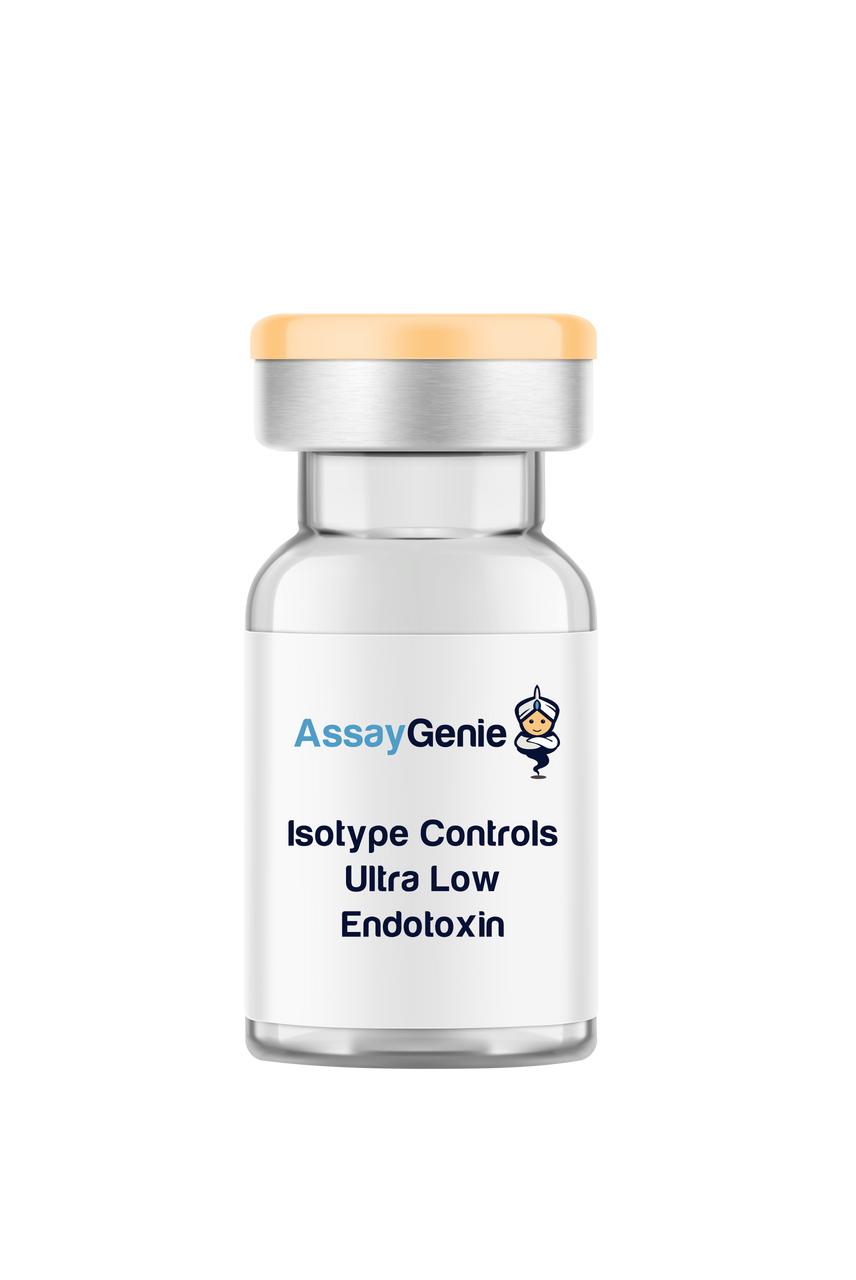
| Rat IgG2a Isotype Control | |
|---|---|
| Clone | 1-1 |
| Isotype | Rat IgG2a |
| Endotoxin Level | Ultra Low Endotoxin |

![Anti-Mouse CD40 [FGK45] In Vivo Antibody - Ultra Low Endotoxin Anti-Mouse CD40 [FGK45] In Vivo Antibody - Ultra Low Endotoxin](https://cdn11.bigcommerce.com/s-39x6lpnvxv/images/stencil/608x608/products/119901/118084/anti-mouse-cd40-fgk45-in-vivo-antibody-ultra-low-endotoxin__78080__92549.1698937766.jpg?c=1)
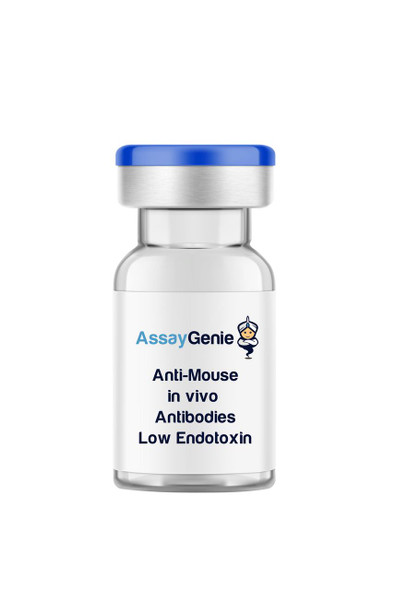
![Anti-Human CD40 [G28.5] In Vivo Antibody - Ultra Low Endotoxin Anti-Human CD40 [G28.5] In Vivo Antibody - Ultra Low Endotoxin](https://cdn11.bigcommerce.com/s-39x6lpnvxv/images/stencil/590x590/products/120064/118247/anti-human-cd40-g28.5-in-vivo-antibody-ultra-low-endotoxin__33819__31631.1698937843.jpg?c=1)

